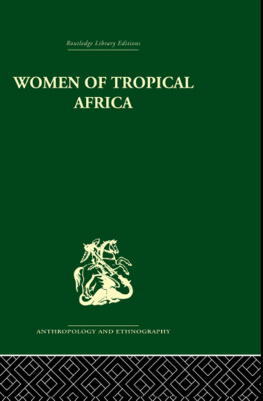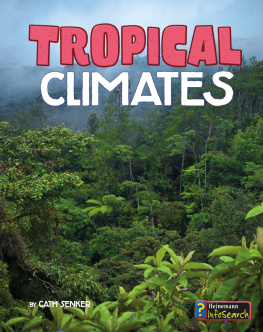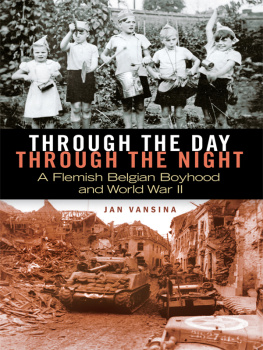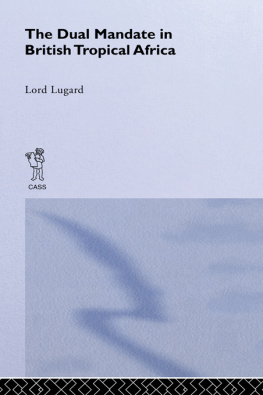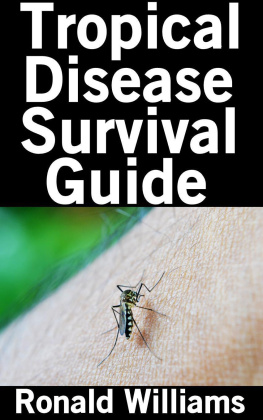AFRICAN ETHNOGRAPHIC STUDIES
OF THE 20TH CENTURY
Volume 69
THE HISTORIAN IN
TROPICAL AFRICA
THE HISTORIAN IN
TROPICAL AFRICA
Studies Presented and Discussed at the Fourth International African Seminar at the University of Dakar Senegal 1961
Edited by
J. VANSINA, R. MAUNY AND L. V. THOMAS
First published in 1964 by Oxford University Press for the International African Institute.
This edition first published in 2018
by Routledge
2 Park Square, Milton Park, Abingdon, Oxon OX14 4RN
and by Routledge
711 Third Avenue, New York, NY 10017
Routledge is an imprint of the Taylor & Francis Group, an informa business
1964 International African Institute
All rights reserved. No part of this book may be reprinted or reproduced or utilised in any form or by any electronic, mechanical, or other means, now known or hereafter invented, including photocopying and recording, or in any information storage or retrieval system, without permission in writing from the publishers.
Trademark notice: Product or corporate names may be trademarks or registered trademarks, and are used only for identification and explanation without intent to infringe.
British Library Cataloguing in Publication Data
A catalogue record for this book is available from the British Library
Publishers Note
The publisher has gone to great lengths to ensure the quality of this reprint but points out that some imperfections in the original copies may be apparent.
Disclaimer
The publisher has made every effort to trace copyright holders and would welcome correspondence from those they have been unable to trace.
The Historian in Tropical Africa
STUDIES PRESENTED AND DISCUSSED AT THE FOURTH INTERNATIONAL AFRICAN SEMINAR AT THE UNIVERSITY OF DAKAR SENEGAL 1961
Edited with an introduction by
J. VANSINA, R. MAUNY and L. V. THOMAS
Published for the
INTERNATIONAL AFRICAN INSTITUTE
by the
OXFORD UNIVERSITY PRESS
LONDON IBADAN ACCRA
1964
CONTENTS
Oxford University Press, Amen House, London E.C.4
GLASGOW NEW YORK TORONTO MELBOURNE WELLINGTON
BOMBAY CALCUTTA MADRAS KARACHI LAHORE DACCA
CAPE TOWN SALISBURY NAIROBI IBADAN ACCRA
KUALA LUMPUR HONG KONG
International African Institute 1964
Printed in Great Britain
T HIS volume is intended to make available to a wider audience the studies presented and discussed at the fourth of the series of seminars organized by the International African Institute. The general purpose and scope of these meetings will be known to readers of the earlier volumes on Social Change in Modem Africa (1961) and African Agrarian Systems (1963), while the subject matter dealt with and the views expressed at the Seminar are admirably presented in the Introductory Summary. As will be seen, the participants concerned themselves not only with the consideration of the diversity and relevance of sources for historical studies in Africa, but attempted to chart some of the fields to which research might most profitably be directed. They also endeavoured to elucidate the somewhat special position which these studies were coming to hold in the social and cultural life of African peoples today.
Both the participants and the International African Institute are indebted to Professors R. Mauny and L. V. Thomas, the co-chairmen and organisers of the meeting, and to Professor J. Vansina, who served it as general rapporteur, for their work both during the sessions and subsequently in preparing so comprehensive a review.
Our thanks are also due to the Institut Franais dAfrique Noire and the University of Dakar for receiving the Seminar, and to the Government of Senegal for its generous hospitality.
This International African Seminar programme as a whole has been made possible by generous grants for expenses from the Ford Foundation. Promise of the continuance of these grants has enabled the Institute to plan a further series of meetings and we wish to take this opportunity of expressing our renewed thanks for this assistance for a programme which is proving so useful in fostering closer contacts between scholars in many varied fields and also in securing for early publication accounts of research in progress that relate to many African countries.
DARYLL FORDE
General Map.
J. VANSINA, R. MAUNY AND L. V. THOMAS
L ACCESSION lindpendance de la majeure partie des Etats africains a mis lHistoire, science considre jusquici sur ce continent comme accessoire, au premier plan de lactualit. Chaque Etat se penche sur son pass pour faire revivre les fastes des anciens Empires, rechercher ses origines, situer son histoire par rapport celle des autres parties du monde et connatre ainsi la gense et les lignes dvolution de ses structures politiques, sociales, conomiques et autres. Sur un plan plus concret, il sagit aussi pour les Ministres dEducation Nationale de prparer les manuels qui enseigneront, non seulement lhistoire du peuple colonisateur comme autrefois mais celle des divers peuples africains. Do lactuele floraison douvrages scolaires ou les travaux dhistoire rgionale.
Cest pour rpondre ce besoin que lInternational African Institute a dcid de consacrer un Sminaire non pas lhistoire de lAfrique dans sa totalit, mais cet aspect un peu particulier que prsente cette discipline chez des populations et dans les pays o les documents crits sont rares: en bref, certains aspects de lethno-histoire prcoloniale de lAfrique. Lintention du Sminaire ntait pas de faire le point des connaissances historiques africainesencore que plusieurs sances aient t consacres ce sujetmais plutt de permettre une discussion collective sur les mthodes spcifiques dinvestigation et dexplication. De fait, les allusions nombreuses aux donnes de lhistoire rgionale navaient dautre prtention que dillustrer les techniques utilises par des chercheurs d origine et de formation diffrentes, travaillant chacun dans un domaine plus particulier.
Cette confrontation permit dlaborer trois thmes principaux de discussion: les techniques de lhistorien de lAfrique; lhistorien et la synthse de lhistoire; lhistorien devant lAfrique moderne, cela sajoute une rubrique consacre lhistoire rgionale.
ALES TECHNIQUES DE LHISTOIRE
Les documents crits sont extrmement rares
1. LES TRADITIONS ORALES
(a) Les rgles habituelles de la mthode et de la critique historiques sappliquent aux documents oraux comme aux sources crites.
La critique externe dune tradition consistera en premier lieu dans ltablissement dun texte crit, compte tenu de toutes les variantes que connat la tradition. A cette occasion, il importera de rflchir sur les modes de transmission sans oublier de poser un certain nombre de questions fondamentales. Le document recueilli est-il authentique? Est-il corrobor par dautres documents? Narre-t-il un fait conforme aux possibilits du pays ou de lpoque? Comment est-il transmis? Le tmoin a t-il pu connatre la tradition? La chane des tmoins remonte t-elle jusqu lvnement lui-mme? A-t-elle t interrompue? Sest elle fractionne en cours de route? Il pourra tre intressant, pour rpondre ces questions, de connatre au moins les lignes de forces du milieu socio-culturel dans lequel la tradition a vu le jour et sest transmise.





